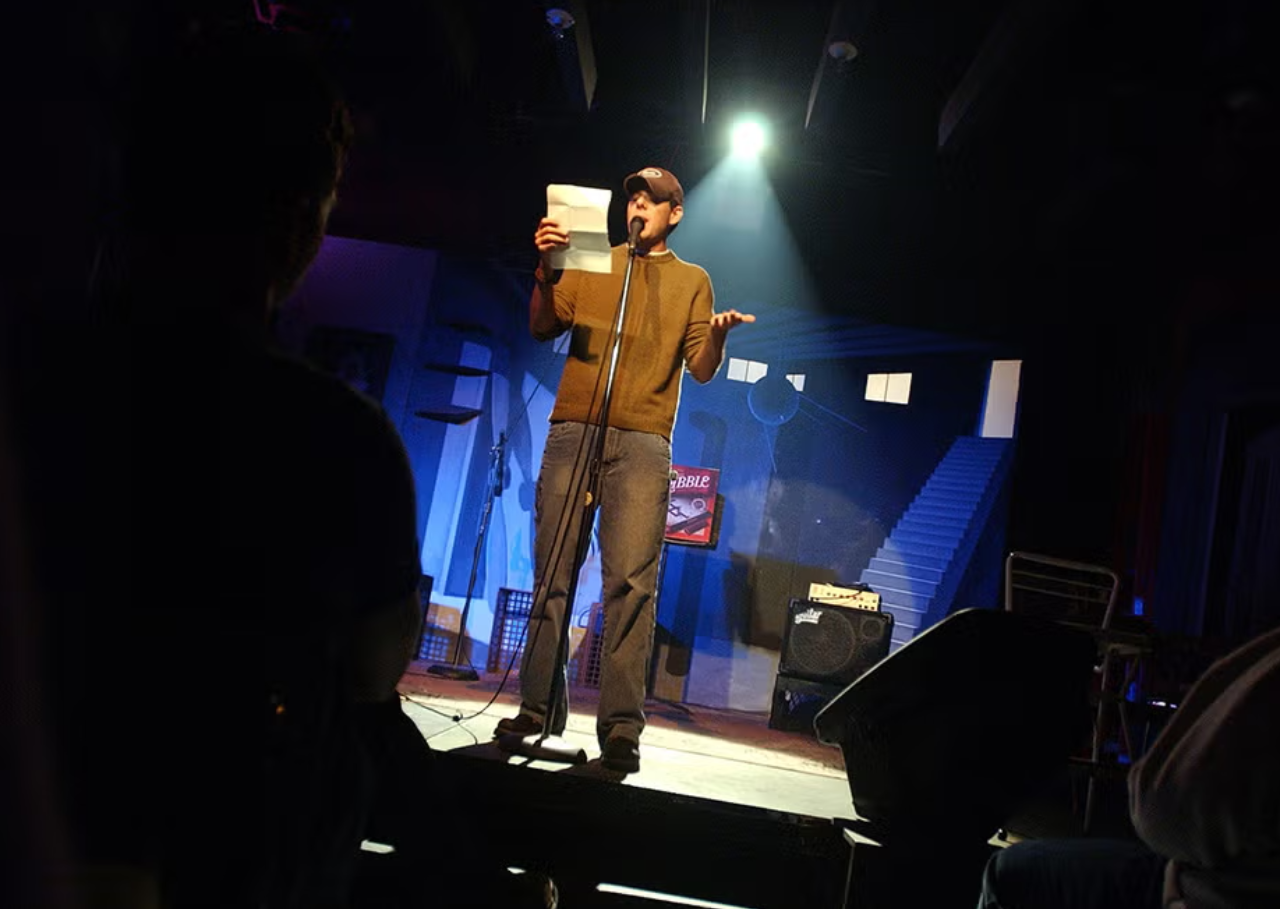The Raw Power of Performance Poetry on Trauma
Some truths are too heavy to stay on the page, they need to be spoken aloud, shared in real time, and felt deep in the room. That’s exactly what performance poetry on trauma does. It turns private pain into collective witness, reminding us that while trauma isolates, spoken word can reconnect us.
Poets like Jenni Bailey know this power intimately. Her work dives into the deep end of lived experience: trauma, disability, survival, and the long, messy work of healing. On the page, her words cut deep. On the stage, they come alive, trembling, fierce, impossible to ignore.
Why Speak Trauma Aloud?
Trauma can be a lonely thing. For many, it lives inside the body and mind like a locked room. Writing can unlock that room, but speaking the words cracks the door wide open.
Performance poetry on trauma turns what was once secret into something shared. When Jenni Bailey steps to the mic, she’s not just reciting lines, she’s offering pieces of her truth so others know they’re not alone in theirs.
The Difference between Page and Stage
Reading a poem about trauma is powerful, but hearing it performed is something else entirely. The pauses, the voice shaking on certain words, the anger or grief that can’t be edited out, all of this transforms a private story into a communal experience.
In her performances, Jenni Bailey doesn’t hide behind metaphors or polite phrasing. Her delivery is raw and real, giving audiences permission to sit with hard truths rather than turning away.
What Audiences Take Away
People don’t always know what to expect when they first encounter performance poetry on trauma. Some come curious, some come cautious, worried about being overwhelmed. But what they find is rarely just sadness, it’s a complicated, honest mix of pain and power.
Jenni’s performances remind audiences that naming trauma doesn’t reopen wounds, it acknowledges them, making space for the possibility of healing. For someone carrying similar scars, hearing a poem spoken aloud can feel like the first deep breath after holding it in for years.
The Courage to Be Witnessed
Performing poems about trauma takes a special kind of bravery. It’s one thing to write painful truths in a notebook, it’s another to stand under bright lights, look strangers in the eyes, and say: This happened. This hurt. I survived.
For poets like Jenni, each performance is an act of resistance against shame. By speaking her story, she pushes back against the silence that trauma so often demands. Her audience becomes not just spectators but witnesses, holding the space with her for a few minutes that can linger long after the final line.
Creating Safe Spaces
Good performance poetry on trauma doesn’t sensationalize pain, it honors it. Poets like Jenni Bailey are careful with their audiences, weaving moments of hope or pause between heavier truths.
Many spoken word nights that feature trauma poetry are intentionally welcoming, creating spaces where listeners know it’s okay to feel uncomfortable, to cry, to reflect. These performances can feel like community therapy sessions, raw, imperfect, and deeply human.
How to Support This Kind of Work
If you’re moved by performance poetry on trauma, one of the best things you can do is show up. Buy a ticket, stream a live performance, or purchase a poet’s recordings. Each show is a testament to the poet’s courage and craft, and your presence says, this story matters.
For poets like Jenni Bailey, audience support is what keeps the work alive. Independent spoken word artists often rely on grassroots communities to share their work far beyond local stages.
Bringing It Home
You don’t have to be a poet to benefit from this kind of raw honesty. Many people discover that listening to spoken word helps they name parts of their own story. It might even inspire them to pick up a pen, write a few lines, or find the courage to speak truths they’ve kept hidden.
Jenni’s work is a reminder that you don’t have to hold trauma alone, words have power, and saying them out loud can transform silence into connection.
Final Thoughts
Performance poetry on trauma shows us what happens when pain refuses to stay hidden. It proves that sharing our hardest stories can be an act of healing, not just for the poet but for everyone listening.
When you watch poets like Jenni Bailey stand on a stage and speak hard truths, you see that survival is not just about moving on, it’s about speaking up. It’s about finding community in places where once there was only silence.
If you ever get the chance, find a spoken word night, take a seat, and let yourself witness what happens when poetry becomes an act of courage.


